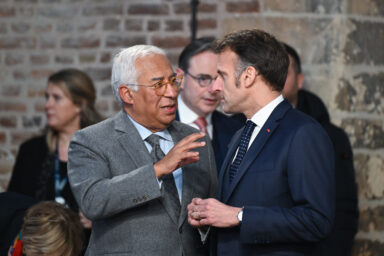The European Union has fired another shot in its campaign to turn clever ideas into big companies, adopting the 2026 work programme of the European Innovation Council (EIC), worth €1.4bn. The money aims to speed deep-tech startups‘ development into successful businesses — and to keep them anchored in Europe.
“Europe has the talent, the science and the ambition to lead in deep tech, and the European Innovation Council is here to make that happen,” declared Ekaterina Zaharieva, the commissioner for startups, research and innovation, as she unveiled the scheme. She also promised urgency, insisting that the new programme offers simpler applications, faster funding decisions and broader connections to customers and partners across the continent and beyond.
From promise to purse
To match that rhetoric the Commission will soon launch the Scaleup Europe Fund, a privately managed offshoot of the existing EIC Fund. Built with private investors, it will plug the yawning gap in late-stage finance that often forces European champions to court American money—and sometimes to move west. The Fund will supply growth capital while, officials hope, letting founders stay put.
Together the 2026 work programme and the new Fund form what Ms Zaharieva calls a “stronger European framework” for turning world-class science into globally competitive firms. “We’re cutting red tape, speeding up funding, and launching solutions to new challenges,“ she pitched. “It will help our brightest innovators move faster, dream bigger and scale globally, while keeping their roots in Europe.”
If Brussels delivers, Europe’s deep-tech hopefuls should gain not only cash but also credibility. The Commission insists that every euro of direct support will come with business-acceleration services, from mentoring to introductions to large corporates and investors.
You might be interested
A menu of money
Five funding streams dominate the new programme. Pathfinder puts €262m behind visionary research teams seeking technology breakthroughs. Transition offers €100m to turn such research into prototypes and pilot lines. The freshly minted Advanced Innovation Challenges, modelled on America’s ARPA schemes, reserve €6m for high-risk, demand-driven bets where Europe boasts strong science yet little commercial uptake.
The best-known tool remains the EIC Accelerator, worth €634m in 2026. It gives startups and SMEs grants of up to €2.5m and equity cheques of up to €10m to develop and scale disruptive products. At the top end sits STEP Scale Up, funded with €30m, which can invest between €10m and €30m in firms seeking private rounds of €50m or more.
The EIC Board, a group of external innovators and investors, steered many of these choices. Concrete recent examples include projects turning sunlight into chemicals without fossil fuels, biodegradable heat-resistant food packaging, next-generation AI for robotics, portable MRI devices, and sustainable ocean-based extraction of CO₂ and hydrogen. Companies like Brineworks and MOA Biotech have received EIC backing, combining grant and equity funding to push technologies toward commercialization.
Accelerating the accelerator
From next year onwards, applying to the Accelerator ought to feel less like homework and more like pitching. Full proposals shrink from 50 pages to 20. Evaluations will happen every two months, not twice a year. Deeper technology assessments will anticipate the due-diligence questions investors ask, cutting delays between grant decision and equity term sheet.
Europe has the talent, the science and the ambition to lead in deep tech, and the European Innovation Council is here to make that happen. — Ekaterina Zaharieva, European Commissioner for Startups, Research and Innovation
The programme also nods to the wider Startup and Scaleup Strategy. A European Corporate Network will expand the successful “EIC corporate days”, matching young firms with big buyers. A new Gender Index will track how many women lead or co-found the ventures that queue for EIC support. Targeted challenges—covering critical raw materials, nuclear fusion, artificial intelligence and climate adaptation—complement the open calls.
Brussels likes to spray numbers. It boasts that, since 2021, the EIC has backed more than 700 companies and over 600 research projects. Its investment arm, the EIC Fund, has poured almost €1.5bn directly into more than 300 startups. It also claims to have leveraged 3.5 times that amount in co-investments. Information days on November 13th, 14th and 17th will woo the next cohort. Europe’s innovators will soon judge whether the Commission’s latest plan matches its sales pitch.











